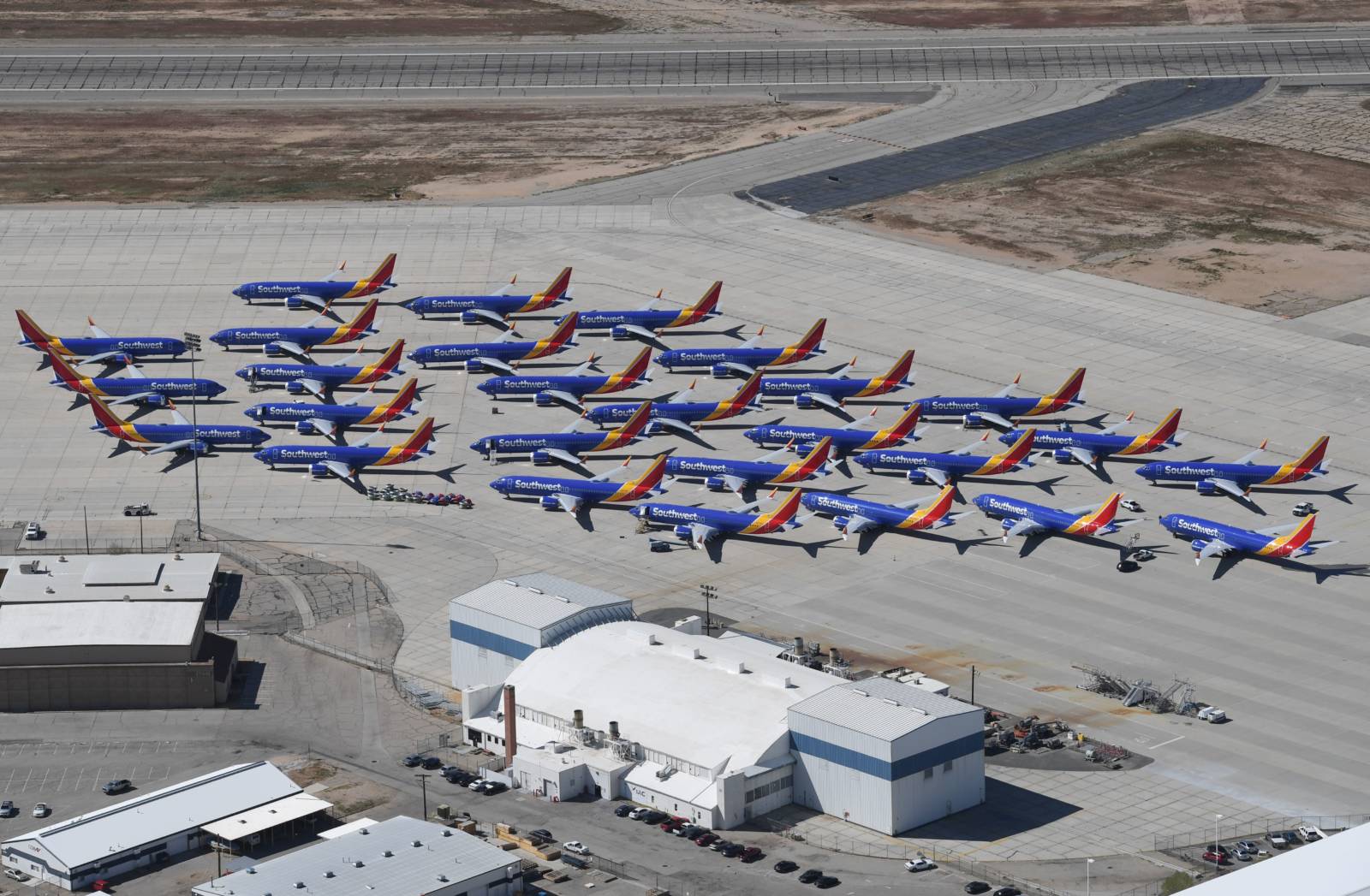Southwest cautious with winter schedule as 737 MAX grounding drags on
As the largest operator of Boeing 737 MAXes in the US, the worldwide grounding of that plane is having a particularly noticeable effect on Southwest Airlines.
In a call with investors Thursday, executives said the airline remains committed to the aircraft, but warned that it is going to take some time for operations to return to normal, even once the grounding order is lifted.
In the meantime, Southwest has published what its executives are calling a "smooth" schedule for the fourth quarter, through at least Feb. 8, when the airline currently expects to begin bringing its MAXes back online.
In response to the groundings, the airline's leadership said it has had to make some decisions about what to prioritize in its schedule. Executives said reliability was a top concern for the airline, and its planners created a schedule they believe the airline will be able to adhere to, even as its fleet remains somewhat in flux.
Related: Snapshot: A Look at Southwest Airlines by the Numbers
The fourth quarter is a time of peaks and troughs for air travel, with busy periods around the major holidays then dramatically slower periods in between. Optimally, Southwest would usually run a variable schedule in that period. The airline originally planned to have nine different iterations of its flight times in the fourth quarter, but decided to publish a single, unified schedule for the period instead.

For passengers, that means the airline is flying fewer flights than consumer demand would dictate around the holidays, and more flights during off-peak times in that period.
The airline remains optimistic that its MAXes will start coming back online in February, though its executives cautioned it will take two to four months before the fleet is fully up to speed once the grounding order is lifted.
Southwest's leaders also cautioned analysts on the call against reading too deeply into reports that they were exploring alternative aircraft. The airline famously flies only Boeing 737s, and while its executives acknowledged the airline always keeps its opportunities open, the business case for fleet diversification remains unclear.
The airline also continues negotiating with Boeing for compensation for its MAX-related losses.
TPG featured card
at Capital One's secure site
Terms & restrictions apply. See rates & fees.
| 5X miles | Earn 5X miles on hotels, vacation rentals and rental cars booked through Capital One Travel |
| 2X miles | Earn unlimited 2X miles on every purchase, every day |
Pros
- Stellar welcome offer of 75,000 miles after spending $4,000 on purchases in the first three months from account opening. Plus, a $250 Capital One Travel credit to use in your first cardholder year upon account opening.
- You'll earn 2 miles per dollar on every purchase, which means you won't have to worry about memorizing bonus categories
- Rewards are versatile and can be redeemed for a statement credit or transferred to Capital One’s transfer partners
Cons
- Highest bonus-earning categories only on travel booked via Capital One Travel
- LIMITED-TIME OFFER: Enjoy $250 to use on Capital One Travel in your first cardholder year, plus earn 75,000 bonus miles once you spend $4,000 on purchases within the first 3 months from account opening - that’s equal to $1,000 in travel
- Earn unlimited 2X miles on every purchase, every day
- Earn 5X miles on hotels, vacation rentals and rental cars booked through Capital One Travel
- Miles won't expire for the life of the account and there's no limit to how many you can earn
- Receive up to a $120 credit for Global Entry or TSA PreCheck®
- Use your miles to get reimbursed for any travel purchase—or redeem by booking a trip through Capital One Travel
- Enjoy a $50 experience credit and other premium benefits with every hotel and vacation rental booked from the Lifestyle Collection
- Transfer your miles to your choice of 15+ travel loyalty programs
- Top rated mobile app


